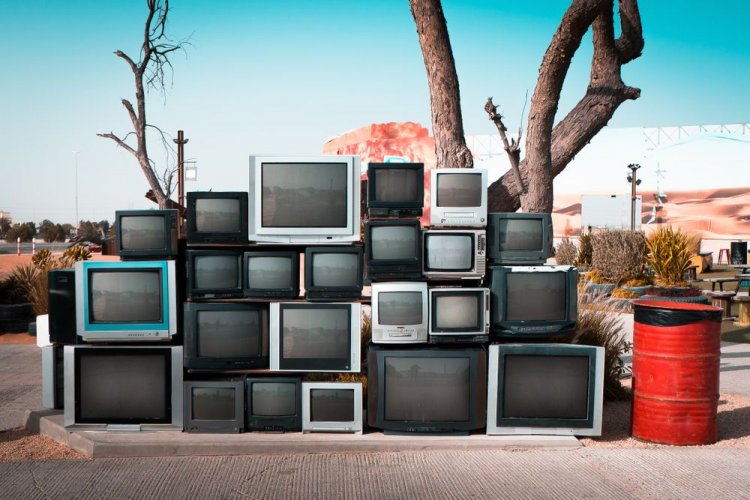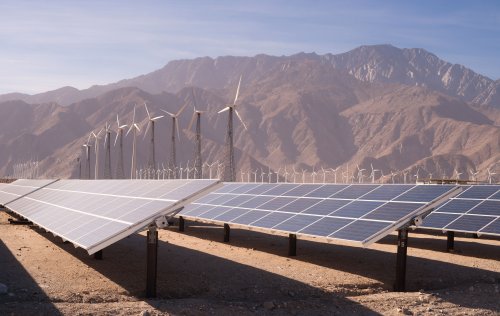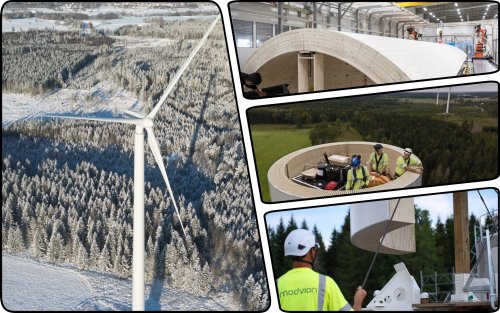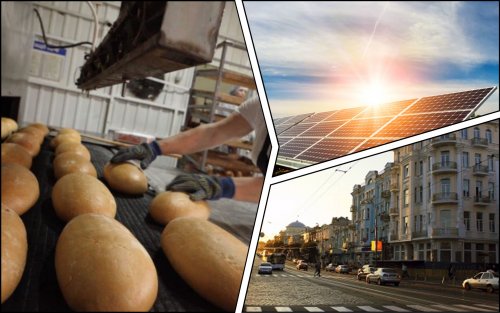Information and communication technology (ICT) companies are implementing innovative solutions to minimize greenhouse gas (GG) emissions, increase the rational use of natural resources and reduce the sector's impact on the environment.
Although the sector has relatively low emissions, about 2-4%, increasing demand for services will increase energy consumption, according to EURACTIV.
The paper explained that both large and small ICT companies are working to address some of the world's most pressing issues, including improving food security through precision farming, improving personalized care through digital therapy and responsibly developing artificial intelligence.
In addition, the EU Green Agreement identifies digital technologies as an "important factor" in achieving sustainability goals in various sectors, as digitalisation will help track pollution levels and optimize the use of energy and natural resources. Technology is a key part of the solution, in particular its ability to analyze data in real time, which contributes to more efficient use of resources.
"Global ICT providers responsible for maintaining a stable connection in the world have gained valuable information through their experience in implementing and delivering various aspects of sustainable connectivity and digitalisation in different sectors," the report said.
For example, drones connected to the 5G network can help farmers use pesticides more sparingly, and gigabit fixed networks provide virtual reality that replaces unnecessary travel to physical places.
Some telecommunications service providers have already taken steps to reduce greenhouse gas emissions and their impact on the environment. More than 10 leading telecommunications operators, along with more than a dozen ICT companies, have signed the European Green Digital Coalition Declaration, which calls for reducing GG emissions by 2030 and climate neutrality or reaching net zero by 2040.
In developing their own goals and self-imposed policies, the companies also agreed to use indicators and targets approved by the Scientific Based Targets (SBTi) initiative. They also joined the Race to Zero Climate Ambition Alliance.
More specific actions by environmental providers include:
- purchase of energy efficient network components and equipment for customers (eg set-top boxes);
- use of energy efficiency improvements (eg artificial intelligence and intelligent measurement);
- implementation of strategies to eliminate the use of harmful substances (including coolants in internal air conditioning systems);
- use of renewable energy sources to ensure their work.
Some ICT companies have also signed long-term contracts with renewable energy suppliers as they work to achieve their 100% renewable energy targets to avoid the negative impact of fossil fuels on the environment.
In addition, companies are also addressing the issue of e-waste, which has the greatest impact on the environment, through initiatives such as Eco Rating and their own internal programs.
Through these programs and initiatives, telecommunications companies have already removed more than 6.5 million tons of e-waste and recycled or reused up to 99% of this waste in an environmentally friendly manner.
Reducing greenhouse gas emissions and reducing environmental impact are likely to continue to yield positive results as ICT companies continue to work towards these goals and continue to pursue their own policies to be more environmentally friendly and sustainable.
"Telecommunication providers are important stakeholders in Europe's green and digital transition and have good opportunities to provide expertise in shaping forward-looking rules that avoid hampering the sustainable digital future that Europe needs. The ICT industry remains ready to work together to create a future regulatory framework for the EU and global green ICTs, such as new rules to reduce the cost of broadband that attracts private investment, ”the report said.
The full realization of the goals of the EU Green Agreement and the goals of the Digital Decade will require a combination of all technologies and infrastructures of gigabit connection. Investors in this sector would most welcome connection policies and regulatory instruments that are technology-neutral.
The article also explained that the overall goal should be to increase the spread of digital technologies in society, use their positive impact on reducing emissions and increase resource efficiency.
Thus, the Brussels-based representative of private investors in gigabit infrastructure, GIGAEurope is in favor of the lack of preferential technology requirements in EU regulatory instruments for the telecommunications sector, such as the Broadband Cost Reduction Directive (BCRD) and state aid.
As reported EcoPolitics previously, named an unexpected industry that plays key role in reduction CO2 emissions.





